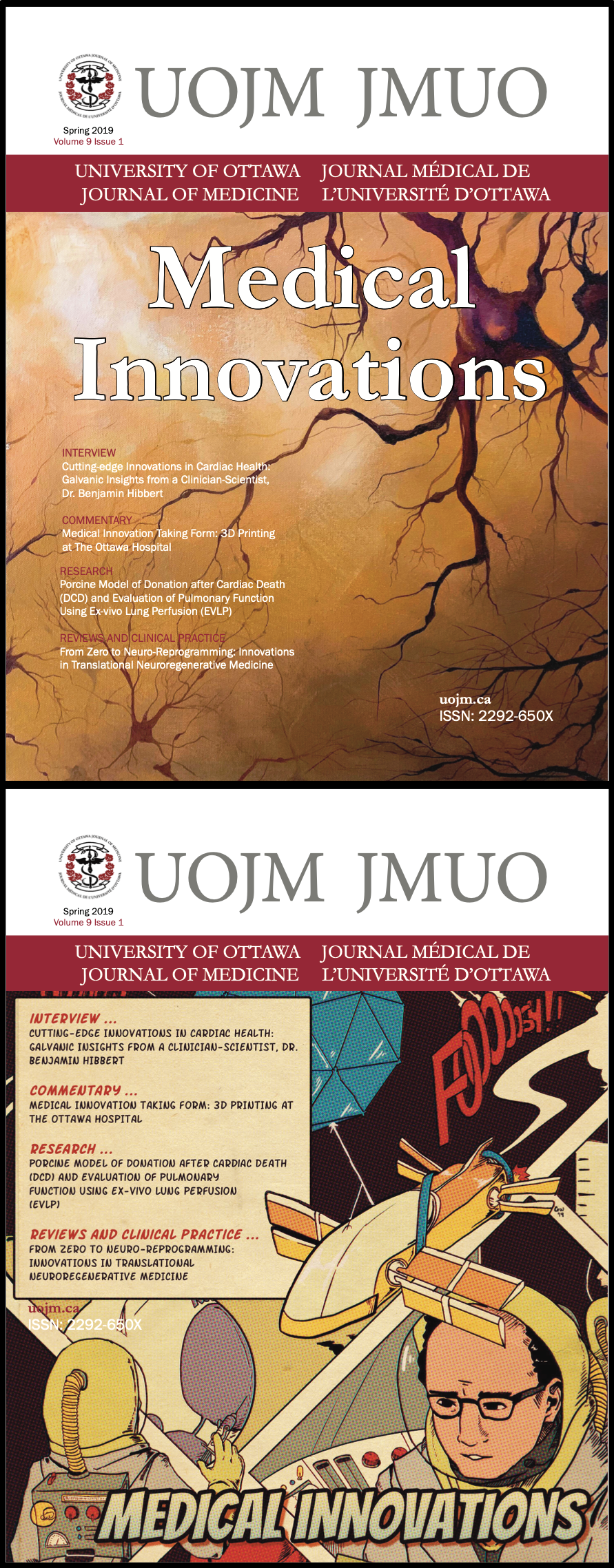From Zero to Neuro-Reprogramming: Innovations in Translational Neuroregenerative Medicine
DOI :
https://doi.org/10.18192/uojm.v9i1.4163Mots-clés :
genetic reprogramming, neural stem cells, translation, neurodevelopment, neurodegenerationRésumé
Acquiring live human nervous tissue for research presents ethical and technical constraints. As a result, clinicians and scientists resort to using animal models to investigate human neuronal development and degeneration. However, innate species differences in neurobiology have hindered the translation of disease pathologies and development of therapeutic strategies. The discovery of endogenous neural stem cells (NSCs) and their examination has been critical for neuronal development, degeneration and regeneration. NSCs can exist in different developmental stages, embryonic through adult, and possess the capacity to generate the various cells that make up the nervous system. Importantly, human somatic cells can be obtained non-invasively and genetically reprogrammed into NSCs providing an ethically viable source of stem cells for translational study and potential therapy. Novel methods to generate NSCs of various developmental origins and regional identities are rapidly evolving to provide safer, quicker, and more efficient reprogramming strategies. Reprogrammed NSCs share many molecular and functional attributes with their endogenous NSC counterparts and can be used for in vitro modelling at a large scale. The accessibility to study patient specific NSCs allows the causal inferences of human disease mechanisms that may be unfeasible to model in animals. Despite the novelty of this burgeoning field, the opportunity for translational discoveries in neuronal development and degeneration and for therapeutic applications is unprecedented. This review will highlight the advances in manufacturing NSCs and their translational implications for disease modelling and potential treatment of the nervous system.
Téléchargements
Publié-e
Numéro
Rubrique
Licence
- Les auteurs qui publient dans le JMUO gardent les droits d’auteur de leurs articles, incluant tous les brouillons et la copie finale publiée dans le journal
- Bien que le JMUO n’a pas les droits d’auteur des articles soumis, en acceptant de publier dans le JMUO, les auteurs donnent le droit au journal d’être les premiers à publier et à distribuer leurs articles.
- Par la suite, les auteurs peuvent soumettre leurs documents à d’autres publications, incluant des revues ou des livres, avec un remerciement de leur première publication dans le JMUO
- Des copies du JMUO seront distribuées à la fois sous format papier et en ligne, et tous les matériaux seront accessibles au public en ligne. Le journal n’a pas de responsabilité légale par rapport à la distribution publique du contenu.
- Prière de vous assurer que tous les auteurs, les coauteurs et les investigateurs
- Le contenu est rendu disponible sous licence Creative Commons Attribution - Pas d'Utilisation Commerciale - Pas de Modification 4.0 International.


